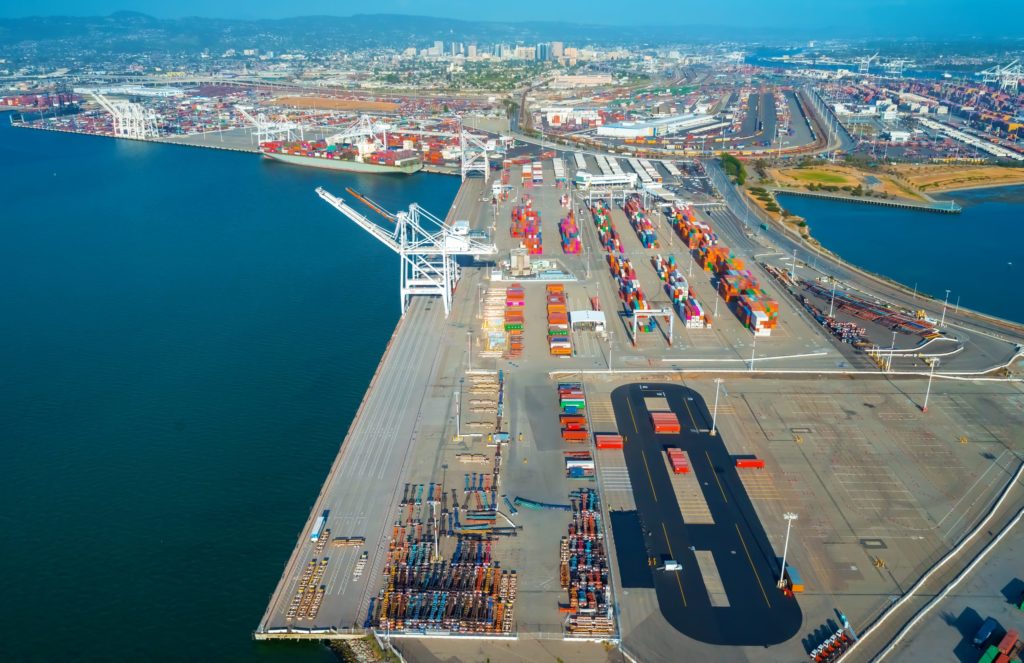Time to Trade
Free trade has long been a point of debate in domestic politics. Despite enduring opposition, Americans have long embraced the idea that free trade benefits society. However, free trade’s popularity has taken a hit in the last decade. Rising populism has called into question the Washington consensus on economic liberalism, despite the lasting benefits the United States has gained from free trade. Former President Donald J. Trump pushed protectionism during the 2016 general election, and Hillary Clinton pledged to remove the United States from the Obama administration-negotiated Trans-Pacific Partnership if she were elected president. Under the Trump administration, the United States renegotiated the North American Free Trade Agreement, engaged in a trade war with China and began trade disputes with European nations.
While Trump couched this as a commitment to fair trade, particularly attacking China as an unfair actor in the global market, people like then-White House trade adviser Peter Navarro held deeply critical views of free trade, flaunting economic consensus on the issue. Now, with the former president seeking another term in the 2024 elections, the mask has slipped. Trump recently released a 2024 trade agenda, and while the focus was overwhelmingly on addressing unfair trade practices with China, he also outlined a harsh policy attack on trade broadly. He called for “universal tariffs” and a return to the outdated economic paradigm of mercantilism.
While President Joe Biden hasn’t been so forward about his antagonistic approach to free trade, his administration’s agenda has frustrated foreign partners and domestic business groups. Biden has continued to support tariffs in multiple areas, refusing to reduce them even in the face of rising inflation and cost of living concerns faced by the American people. Additionally, the Biden administration refuses to stand up for American agricultural producers by discussing tariff liberalization with other nations. The Inflation Reduction Act caused anger with British and European counterparts, as the Biden administration has clearly placed trade negotiations on the back burner. This mindset poses a significant risk to the American economy, and it ignores the fact that trade liberalization has created jobs and wealth for countless people across the world.
In the post-World War II area, the world has experienced substantial economic growth, particularly since the 1980s. As nations began to reduce trade barriers with partners, economic growth and prosperity followed. Allowing nations to compete on the global market allows for specialization of production in areas where they have competitive advantage. This allows for more efficient allocation of resources, increased productivity, lower costs and increased competitiveness in the global marketplace. As a result, countries can enjoy a higher standard of living and a more diverse range of products at lower prices. Trade also encourages innovation, as companies invest in research and development to improve their products and processes in order to stay competitive.
Critically, free trade promotes international cooperation and peace. Commerce remains a compelling reason for nations to retain peace between partners. This is perhaps demonstrated best by the European Union, which provides for the free movement of labor and capital between its members. Trade complicates conflict, as disruption to supply chains can cause negative impacts on prices, product availability and employment. By tying nations and interests together, free trade promotes international cooperation and helps to reduce the likelihood of conflict.
Although there are areas of critical national security which necessitate some level of protection, such as domestic food production, manufacturing of defense-related infrastructure and domestic pharmaceutical production, these components do not constitute a defense of anti-free trade policies as an economic paradigm. Tariffs and other protectionist policies hurt American workers and consumers. Despite the framing of tariffs by the Trump and Biden administrations as a pro-American policy, they increase the cost of these goods for consumers and reduce the competitiveness of domestic producers. As established by studies on the steel tariffs instituted during George W. Bush’s administration, the economic benefit to domestic steel producers was minimal. The economic loss to American manufacturers which use imported steel as an input was significantly larger. By protecting domestic industries, anti-free trade policies reduce the incentives for domestic industries to innovate and improve their products, as they are shielded from foreign competition. This can lead to a decrease in overall productivity and competitiveness, which can harm the economy in the long run.
Free trade as an American policy goal has promoted economic growth, competition, innovation, international cooperation and peace. As the United States seeks to combat growing Chinese influence, its leaders must prioritize constructive dialogue on free trade with nations. Instead of isolating trade partners in the name of an outdated, disproven economic paradigm, Republicans and Democrats should pursue bilateral and multilateral free trade agreements as a paramount policy priority. Instead, both seem content to allow for American decline in the area of economic liberalism, granting adversaries like China an opening to undermine American dominance in the global economy. It might be hard to imagine shared ground between Biden and Trump, but on the issue of free trade, these two men are united in slowing American growth and prosperity.









